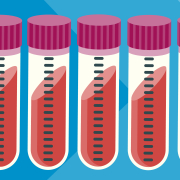Building on the legacy of the 100,000 Genomes Project
As the pioneering project recruits its last participants, we look forward to the NHS’s plans for a Genomic Medicine Service for all
At last count, 83,481 whole genomes from people and families with rare diseases or cancer had been sequenced by the dedicated researchers working on Genomics England’s 100,000 Genomes Project. The project is on track to finish recruiting patients before the end of the year, and the question remains: what next for genomic medicine in the NHS?
The vision for the future
In her presentation at a recent event organised by Genomics England and Progress Educational Trust, titled How Do We Make Genomics Everybody’s Business?, Professor Dame Sue Hill, Chief Scientific Officer for the NHS, outlined her vision for genomics within the health service and talked of its readiness to integrate genomic sequencing into routine care.
The 100,000 Genomes Project has laid the foundations for something greater: an integrated Genomic Medicine Service (GMS) for the NHS. The project has been essential in establishing proof of concept for genomics in healthcare, from the technological – addressing important issues such as the feasibility and affordability of whole genome sequencing – to the personal, such as consent and data sharing. It has shown that genomic medicine can indeed be implemented at scale across a major health system, and proven its potential to improve healthcare outcomes.
Surmounting challenges
As a first-of-its-kind project, the new GMS faces unique challenges. Whilst bringing the benefits of the latest in genomic medicine, as part of the NHS the service will be tasked with providing consistent and equitable care for 55 million people. It must also adhere to common national standards and protocols.
Infrastructure will be key to success. Professor Hill outlined that the service will be delivered by a network of centres across the country, and will deliver to a single national testing directory that encompasses all current technologies – from testing individual genes to sequencing an entire genome. It will operate as a ‘network of networks’, unifying people from across the health service, and the country, to push the development of genomic medicine forward and ensure that the service runs efficiently and to the highest possible standards.
Readying the workforce
Not only infrastructure is needed: the NHS workforce is vital to the new service meeting its potential. Professor Hill explained that structured education will be a crucial part of the implementation process and talked of the importance of our programme in developing educational initiatives to support staff across all areas of the health service.
The GEP has already developed a number of educational initiatives, both specifically for staff delivering the 100,000 Genomes Project and for other NHS professionals whose work is changing as a result of advances in genomic medicine. It is currently working alongside key partners to scope new resources that will support staff with the transition to the new GMS.
–









